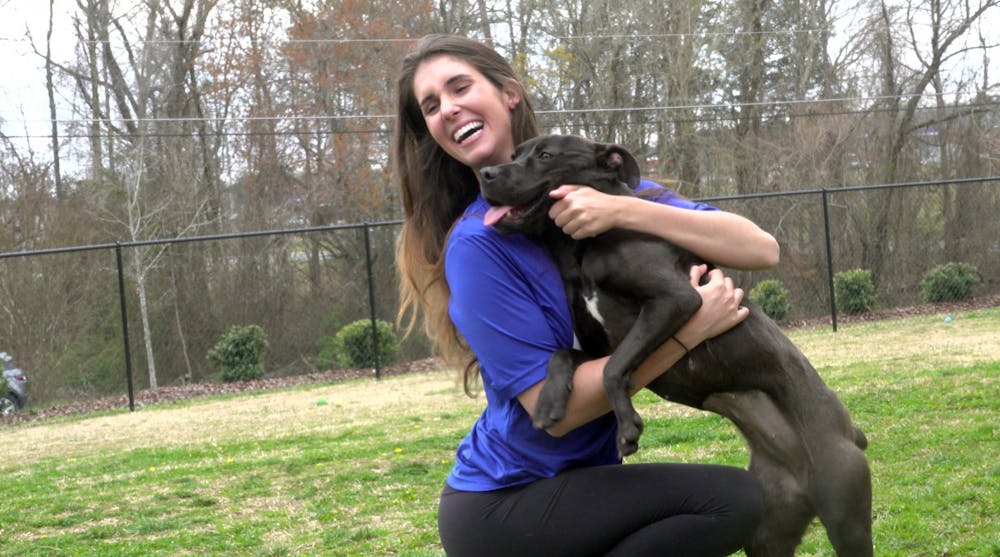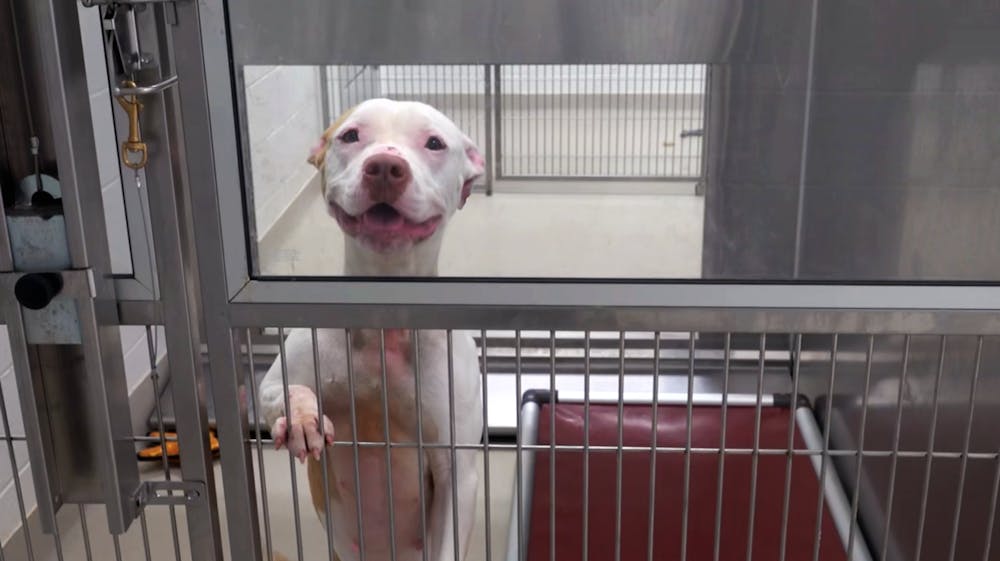Burlington Animal Services sees a number of cats and dogs enter and leave the shelter everyday. But recently, dogs have been entering faster than they’re leaving, and last week, the shelter announced it reached capacity.
Now, BAS is limiting dog intakes to emergencies only — cases where dogs are sick, injured or pose an immediate danger and cannot safely be kept in a home any longer. Until enough space opens up at the shelter, nonemergency requests will be scheduled through a new appointment system.
Director of Animal Services Jessica Arias said the shelter has been experiencing an increase in stray and surrendered dogs for the last seven months. BAS typically records lower levels of dog intakes in January and February, but Arias said this year, the shelter never saw that decline.
“We knew we needed to do something because we're absolutely not going to go back to the days where we consider euthanizing dogs just for space,” Arias said.
BAS has been considered a no-kill shelter since 2018, which means it has a “live release” rate of 90% or higher. According to former program coordinator Laura Michel, the shelter is working to make sure it remains that way, despite the increase in intakes.
“It took a lot of work and effort to reach that, and we certainly don't want to — we are not going to — put a healthy, adoptable animal down because we don't have the space,” Michel said. “But when you get to the point where you're so full and you're at capacity and you really cannot take more animals, that's what happens in many shelters, now you start having to put perfectly healthy animals down.”
Arias said the shelter only considers euthanasia for animals when they have severe medical conditions that cannot be treated, such as severe trauma, end-stage cancer or exhibit violent or malicious behavior. But when all of BAS’ 75 dog kennels filled up in February, Arias said it couldn’t accommodate any more dogs without violating Department of Agriculture regulations. Limiting the animal intake to emergencies only allows the shelter to continue to help animals without compromising its no-kill standard.
Arias and Michel both said they believe the increase in stray and surrendered dogs is due to rising inflation and cost of living.
“There's going to be a continuing need because people are pressured with just being able to afford basic day-to-day living expenses and housing expenses, and sometimes the extra expense of a pet is just more than they can manage,” Arias said.
Because the shelter has become so full, BAS recommends that pet owners surrendering their animals try to rehome on their own before coming to BAS. With BAS’ new limited-intake system, Arias said intake appointments are booked out for months.
To help prevent families having trouble affording their pets from needing to give them up, BAS is hosting a pet food assistance program. The shelter will provide pet food once a month to families in Alamance County with up to five animals. The pet food assistance program is donation driven, and Arias said any donation will make a difference.
“We would never want someone to give up their pet that they love and don't want to part with because it's a matter of they just can't afford to buy a bag of dog food or cat food or litter,” Michel said. “They just need a little help.”
Inside the shelter
Caring for the stray and surrendered dogs, junior Emily Andreuzzi has been volunteering at the shelter for the past year. As the shelter’s 75 dog kennels filled up over the past month, Andreuzzi said she’s seen the lack of space have a negative effect on the dogs.
“I see it in a dog's eyes. I know that they're stressed as well and it's not the most ideal situation,” Andreuzzi said. “Many dogs get overwhelmed by the other dogs barking and … there's more poop laying around in the kennel, and it's just hard because they're dirtier.”
Senior Corinne Orgettas also volunteers at BAS with Andreuzzi and has been working there multiple times a week for the past two years. Orgettas said because there are so many animals, the shelter has had to double up on kennels for some dogs.
“Seeing multiple dogs kind of crammed in a kennel because we have no other choice is hard,” Orgettas said. “And it's obviously a lot more work for the staff and volunteers here. It's more dogs to get out every day, more dogs to feed, more dogs to clean up after.”

In addition to its 75 kennels, BAS has enclosures for 65 cats at its facility and Arias said there could be anywhere from 70 to 100 more animals offsite in foster care at any given time.
Orgettas has fostered more than 10 dogs and three kittens during her time volunteering, and every animal she fostered was adopted. Having seen both the foster care and kennel sides of BAS, Orgettas said foster care is not only better for the animals, but it also helps them get adopted.
“It really resonates more with adopters when they see a dog in a home setting,” Orgettas said. “You just learn a lot more about dogs when they're in foster, and then you can give that description. And again, that tells potential adopters a lot about the dog, and it makes them more likely to get adopted.”
BAS has waived all dog and puppy adoption fees and reduced cat and kitten adoption fees from $50 to $20 to incentivize adoption. Arias said while the shelter is seeing some improvement and community assistance since announcing limited intake, this is an issue that isn’t confined to Alamance County.
“I'm seeing this from my peers in animal welfare across the nation and across the state,” Arias said. “Folks everywhere, in every county, are overwhelmed with the number of animals coming in their shelters.”


